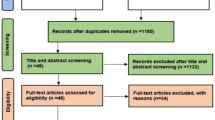Abstract
Education is essential for every child to gain knowledge, develop better understanding about life to deal with various challenges in life and to become a responsible and productive citizen. However, a large number of children in India either do not get the opportunity for study or become school dropout at an early stage because of various reasons. The scenario of school dropout is quite disturbing in developing countries like India as compared to industrialised countries. This chapter focuses on the role of the Right to Education Act 2009 (alternatively known as The Right of Children to Free and Compulsory Education Act, 2009) in ensuring education for all children in addition to discussing the research-based evidence on school dropouts and various reasons behind it. The chapter also discusses category-wise school-dropout rate in India during 2015–2020 at primary, upper-primary and secondary levels. A comparative picture of school dropout rate at different levels before and after the enactment of The Right of Children to Free and Compulsory Education Act 2009 is presented indicating positive impact of the Act. Finally, the chapter focuses on various preventive measures for controlling school dropout in India through creating a positive and safe school environment, organizing teachers training for quality teaching and involving parents and larger community in various developmental programs of schools.
Access this chapter
Tax calculation will be finalised at checkout
Purchases are for personal use only
Similar content being viewed by others
References
Dash, M., & Khan, F. (2001). Impact of guided k-learning on the cognitive performance of low and high achievers. Psychological Studies, 46(1–2), 14–20.
DES Publication. (2006). School matters. The report of the task force on student behavior in second level schools. SESS.ie/documents-and-publications/otherdes.
Doran, J. (2011). Inclusive education framework. Bangor University, USA.
Govindaraju, R., & Venkatesan, S. (2010). A study on school dropouts in rural settings. Journal of Psychology, 1(1), 47–53.
Gohain, M. (2021, October 6). 1L schools in India run with just one teacher each: UNESCO study. The Times of India, Chennai, Vol. 14, No. 327, p. 1.
Gouda, S., & Sekher, T. V. (2014). Factors leading to school dropouts in India: An analysis of national family health survey-3 data. IOSR Journal of Research & Method in Education, 4(6), 75–83.
Mukunda, K. V. (2009). What did you ask at school today?—A handbook of child learning. Harper Collins Publishers.
National Sample Survey Organization (NSSR) Report. (2009–2010). 66th Round.
NCERT. (2005). National curriculum framework (2005). NCERT.
NUEPA. (2012a). Education for all: Status and trends. NUEPA.
NUEPA. (2012b). Elementary education in India progress towards UEE. NUEPA.
Patel, V., & De Souza, N. (2000). School dropout: A public health approach. National Medical Journal of India, 13, 316.
Pratinidhi, A. K., Kurulkar, P. V., Garad, S. G., & Dalal, M. (1992). Epidemiological aspects of school drop-outs in children between 7–15 years in rural Maharashtra. Indian Journal of Pediatrics, 59, 423–427.
Ricconuni, P., J., Loujeania, W. B., Antonis, K., & Dalun, Z. (2012). Cognitive behavioral interventions: An effective approach to help students with disabilities stay in school. Effective interventions in dropout prevention: A practice brief for educators.
Sajjad, H., Iqbal, M., Siddiqui, M. A., et al. (2012). Socio economic determinants of primary school dropouts: Evidence from south east Delhi, India. European Journal of Social Sciences, 30(3), 391–399.
SPDD. (2012). School dropouts in Cambodia, India, Tajikistan and Timor-Leste. School dropout prevention Pilot Program. Creative.
Uma, R. R. (2011). Reasons for rising school dropout rates of rural girls in India—An analysis using soft computing approach. International Journal of Current Research, 3(9), 140–143.
Author information
Authors and Affiliations
Editor information
Editors and Affiliations
Rights and permissions
Copyright information
© 2022 The Author(s), under exclusive license to Springer Nature Singapore Pte Ltd.
About this chapter
Cite this chapter
Veeraraghavan, V. (2022). School-dropout Scenario in India and Impact of the Right of Children to Free and Compulsory Education Act, 2009. In: Deb, S. (eds) Child Safety, Welfare and Well-being. Springer, Singapore. https://doi.org/10.1007/978-981-16-9820-0_20
Download citation
DOI: https://doi.org/10.1007/978-981-16-9820-0_20
Published:
Publisher Name: Springer, Singapore
Print ISBN: 978-981-16-9819-4
Online ISBN: 978-981-16-9820-0
eBook Packages: Social SciencesSocial Sciences (R0)




